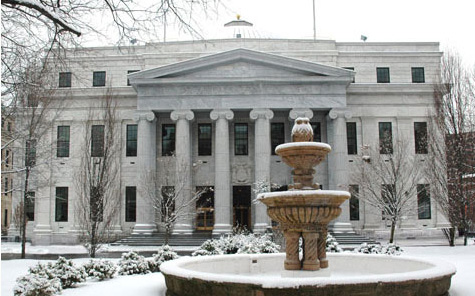Denise filed a felony complaint against Mario and he was indicted for first degree rape and sodomy. He argued that the “marital exemption” allowed both the rape and sodomy. What mattered here was the legal definition of marriage under New York statutes. The state of New York did not consider a couple married if they met certain separation criteria. Mario argued that he and his wife were married just separated. New York however did not consider a couple married if they were separated "pursuant to a valid and effective: order issued by a court of competent jurisdiction which by its terms or in its effect requires such living apart." The People argued that the court order that Denise obtained in 1980 met this definition so they were not married.
The trial court agreed with Mario however and dismissed the indictment. The trial court argued that "the temporary order of protection did not require Mario and Denise to live apart from each other, but instead required only that he remain away from her, and that therefore the "marital exemption" applied." The New York Intermediate Appellate Court reversed and remanded the case for trial. They concluded the court order "by its terms or in its effect requires such living apart". Mario was not legally married at the time of the rape. Notice the "marriage exemption" means that the act itself is not what makes it a crime. The courts are quibbling over the status of their marriage, not the details of the rape itself.
Mario was convicted and became the first husband in New York history to be convicted for raping his wife. He appealed and in 1984, the New York Court of Appeals** unanimously upheld his conviction. The Court of Appeals did not just affirm that he was not legally married, they struck down the marriage exemption itself.
The "marital exemption" to sections 130.35 and 130.50 of the Penal Law under which a married man ordinarily cannot be convicted of forcibly raping or sodomizing his wife, lacks a rational basis for distinguishing between marital rape and nonmarital rape and, therefore, violates the equal protection clauses of both the Federal and State Constitutions (US Const, 14th Amdt, § 1; NY Const, art I, § 11). The various rationales which have been asserted in defense of the exemption are either based upon archaic notions about the consent and property rights incident to marriage or are simply unable to withstand even the slightest scrutiny.The New York Court of Appeals became the first high state court to invalidated an explicit statutory exemption for marital rape. The New Jersey Supreme Court was the first high state court to strike down the marriage exemption. However there was no New Jersey statute with the marital exemption. The source for the marital exemption was Hale's Rule when it was first used in 1977. The New Jersey Supreme Court essentially ruled that Hale's Rule did not exist. New York actually had the marital exemption codified into law. The Court of Appeals invalidated this portion of New York law.
The New York State Legislator tried in 1981 to remove the marital exemption, but was unable to pass a bill. Ultimately the courts had to do it for them. Notice the Court cited the US Constitution as justification. This is the only court I know that did so. So far I only have looked at New Jersey, New York, Michigan, and Virginia.[1][2][3][4][5][6][7]
*The sodomy was forced fellatio which was considered sodomy at the time by New York
**Unlike most states the New York Court of Appeals is the highest court in the New York State. New York does have a New York Supreme Court, but it handles mostly trial cases.

No comments:
Post a Comment